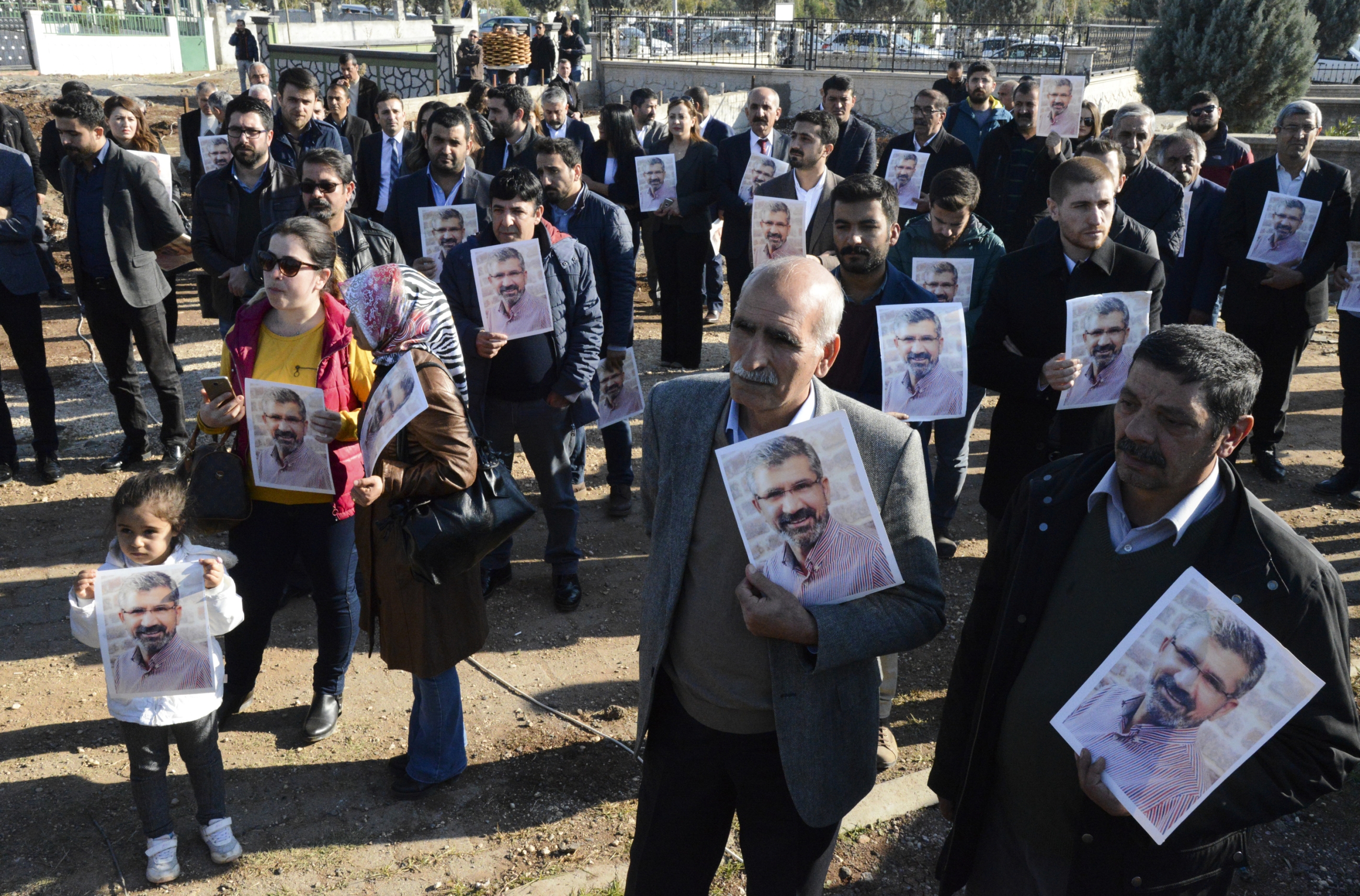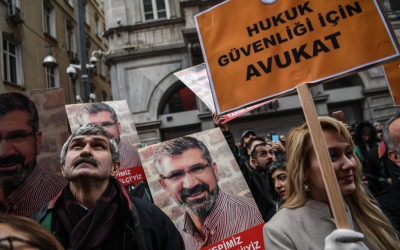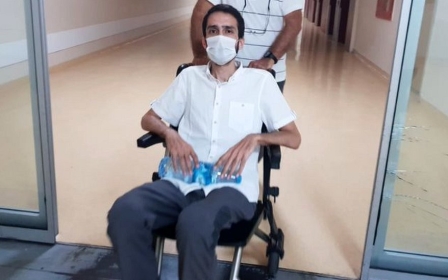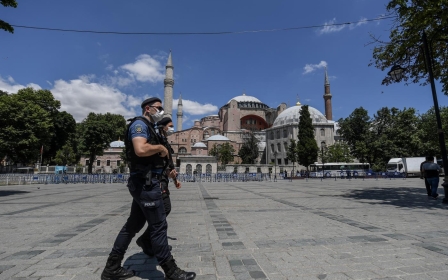Turkish police officers go on trial over killing of Kurdish human rights lawyer

The trial of three police officers accused of killing an influential human rights lawyer in the southeastern Turkish city of Diyarbakir opened on Wednesday, as campaigners called for light to be shone on the murky circumstances surrounding his death.
Tahir Elci, a Kurdish lawyer and president of the Diyarbakir Bar Association, was shot dead on 28 November 2015, shortly after giving a press conference in the city. At that time, Diyarbakir had been the scene of fierce clashes between the Turkish security forces and armed groups linked to the outlawed Kurdistan Workers' Party (PKK).
Pro-government spokespeople suggested that the PKK had been responsible for death.
However, an open source investigation in 2019 by the UK-based organisation Forensic Architecture, which digitally recreated the moments surrounding his death, appeared to implicate police officers who had opened fire at suspected gunmen fleeing a nearby shooting.
Forensic Architecture’s report was
The Diyarbakir prosecutor on Wednesday accused three police officers - Mesut Sevgi, Fuat Tan and Sinan Tabur - of killing Elci and charged them with “causing death by foreseeable negligence”.
None of the three men appeared in person in the courtroom, appearing instead by video link.
Elci's wife, Turkan, criticised this and called for the defendents to be brought to the court, prompting the judge to threaten her with forced removal.
"I have been waiting for five years. If you set aside two minutes to listen to my feelings, probably you will change your decision," she said.
"When I was coming here, I trusted you [the judges], I trusted justice."
Numerous threats against his life
Prosecuting attorney Fikret Ilkiz also criticised the decision by the court board to allow the defendent's testimonies to be heard first, arguing that it was against normal procedure.
Another man, Ugur Yakisir - who is accused of PKK membership - will also be tried in absentia with charges including the intentional killing of the police officers Cengiz Erdur and Ahmet Ciftaslan and the foreseeable intentional killing of Elci.
Elci was a renowned human rights lawyer prior to his death and had worked on numerous cases around enforced disappearance and unlawful killing by government agents, particularly during the height of the conflict between the Turkish state and the PKK in the 1990s.
'Justice for Tahir Elci would be a glimmer of hope in a country where impunity is sadly endemic'
- Milena Buyum, Amnesty International
Following his death, street demonstrations took place in many cities in Turkey, condeming his killing and calling for the real suspects to be held to account.
Elci had endured numerous threats against his life before being killed, particularly after an interview on CNN Turk in October 2015, where he argued that the PKK should not be treated as a terrorist organisation.
Campaigners criticised the initial investigation into Elci's death, noting that prosecutors had failed to collect evidence at the original site of the crime and that the police involved had only been interviewed as witnesses rather than suspects.
“Almost five years after the bullet that killed Tahir Elci was fired, there is hope that the person who pulled the trigger will finally face justice," Milena Buyum, Amnesty International’s Turkey campaigner, said in a statement. "Tahir Elci worked to help victims of human rights violations get justice, campaigning for an end to violence and respect for the rights of the Kurdish people.
“It is a bitter irony that Tahir Elci’s life was cut short by the very violence he was campaigning to end. Justice for Tahir Elci would be a glimmer of hope in a country where impunity is sadly endemic.”
More than 40,000 people have been killed since the PKK launched a guerilla war against the Turkish state in 1984, calling for Kurdish independence and social and cultural rights.
Although a ceasefire was called in 2013, this broke down in 2015, a few months before Elci's killing. Since then, the International Crisis Group said that at least 5,000 people had been killed either in fighting or bomb attacks.
Middle East Eye delivers independent and unrivalled coverage and analysis of the Middle East, North Africa and beyond. To learn more about republishing this content and the associated fees, please fill out this form. More about MEE can be found here.





